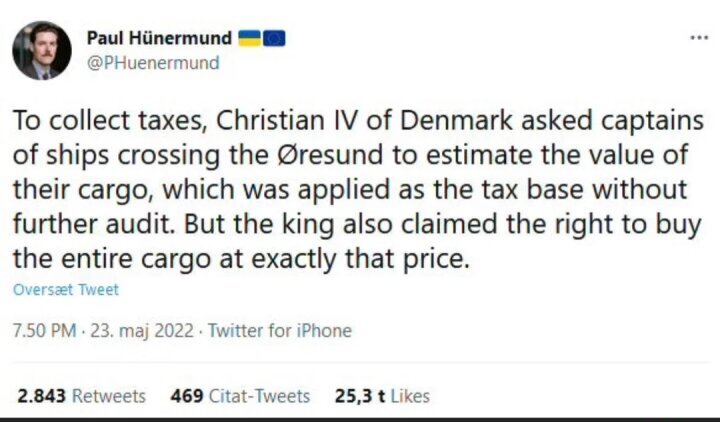This page is a permanent link to the reply below and its nested replies. See all post replies »
Lmao... How does the king expect sailors to be able to put an accurate valuation on items that they might never see or know anything about???
@HootyTheNightOwl every ship must have a manifest describing the cargo.
@NerdyPotato Yes, but... wouldn't it make sense for individual items to have valuations that fluctuate???
Take training shoes, for example... they're not all valued at the same amount.
I'm guessing that the overall value of the contents will also vary if there are undeclared "surprises" lurking in the container, too.
Take training shoes, for example... they're not all valued at the same amount.
I'm guessing that the overall value of the contents will also vary if there are undeclared "surprises" lurking in the container, too.
@HootyTheNightOwl true, but that's why they are only asked for an estimate and this is only about tax audits, not to save money and effort on checks for illegal substances.
@NerdyPotato That's my argument, though... we know that there are people who smuggle items through shipping - so, what's stopping me from smuggling gold bars through this country hidden in my shipment of trainers.
The captain can only declare my trainers and not the contents of them... which is worth many times the value of the original cargo I declared.
The captain can only declare my trainers and not the contents of them... which is worth many times the value of the original cargo I declared.
@HootyTheNightOwl fair enough. Some checking will still need to be done I guess. But you can discourage smuggling through spot checks instead of checking every container of every ship for the exact amount of tax owned.
SunshineGirl · 36-40, F
@HootyTheNightOwl The captain of a private ship in the 17th century would have entered into a business partnership with the merchant supplying the goods, therefore would have a direct interest in knowing the value of the cargo he carried. Va!ue is always relative and subject to fluctuation, but he will have first hand knowledge of the market and what price he needs to achieve for the voyage to be successful. The point is that if he deliberately underquotes the value of the goods to reduce his tax burden, he risks having to dispose of his goods at a sum based on this misrepresentation (and then presumably having to explain to his partner why they have made a trading loss). There is a certain beauty in the theoretical simplicity of the system 🙂




